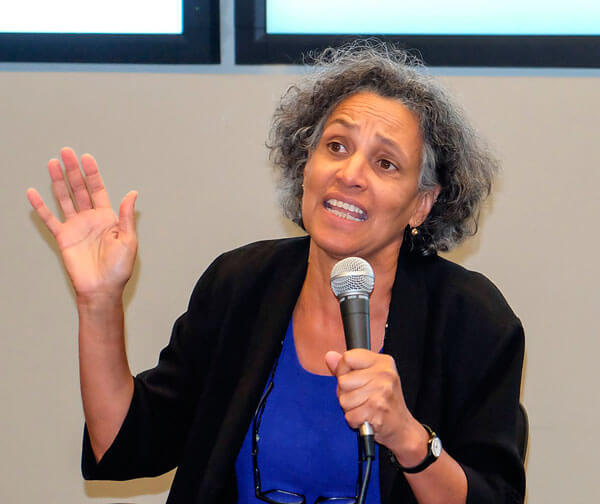The message is loud and clear by Department of Health (DOH) Commissioner Mary Bassett, “If you are pregnant or planning to get pregnant delay travel to Zika-affected countries.” And that goes for women’s sex partners, too; the Zika virus can be spread by unprotected sex.
The Zika-carrying mosquito is not in the New York and northern U.S. states. However, travelers from Zika-affected areas have returned with the virus.
For pregnant women, birth defects caused by the virus on a developing fetus can be devastating.
This urgent message is why the Commissioner held a briefing last week with the ethnic and community press to get the word out.
Since October, there have been over 1500 confirmed reports of babies born in Brazil with malformations, primarily microcephany, caused by the mosquito-born Zika virus.
It is the aedes aegypti mosquito, found in all countries of the Caribbean, and Central and South Americas except Chile (which has a cooler climate), that spreads the virus.
In weekly updated statistics, the DOH reports 249 women tested positive for Zika—140 who had traveled to the Dominican Republic. The other most common countries visited reporting cases are Puerto Rico, Jamaica, Guyana, Colombia, and Saint Lucia. Also, 97 men tested positive. Most recently there have been 14 confirmed cases originated in Miami.
Zika symptons can be slight and may include a fever rarely higher than 102 degrees, an itchy pink rash, bloodshot eyes, sensitivity to light, headaches and joint pains and usually don’t have long-lasting affects except on a baby in utero.
Microcephaly is a birth defect where a baby is born with a head smaller than expected and the smaller brains do not develop properly. A slew of problems—seizures, developmental delays, movement, vision or hearing problems are paired with this birth defect, depending on its severity.
The DOH has begun a free testing program for pregnant women who may have been exposed to the virus — at this point from travel or having sex with someone who has traveled to a Zika-affected area. More than 2,000 pregnant women have been tested since late March and the daily number being tested is increasing. Last Friday alone, the City’s Zika Test Call Center received 56 test requests.
In the New York area, there have been a reported 41 pregnant women who tested positive for Zika, and last week, the first baby in this area was born with microcephany.
Adamant with her message to delay travel, the commissioner is trying to ensure pregnant and potentially pregnant women to avoid the possibility of having a baby with Zika-related problems.
She repeated and emphasized, “If you are pregnant or planning to get pregnant, postpone your trip to places where there is Zika.”
Further recommending, she says, “If he travels, on his return, your male partner should follow our advice regarding safe sex (using barrier methods.) If he is uncertain that he can follow this advice, he should consider not traveling. The consequences of infection are far too high.”
A copy of the Department of Health guidelines can be found at www1.nyc.gov/
























